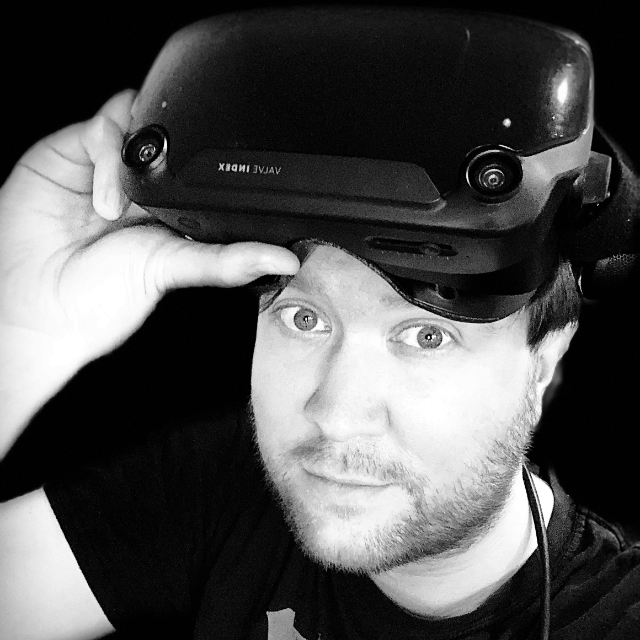
Steve Wheeler
Game Developer & Researcher
About Me
Like many of us, I have loved games for as long as I can remember. When I was 10 years old, I ran an RPG website and forum for my friends at school. I was obsessed with Final Fantasy, Baldur's Gate, and the Ocarina of Time and wanted to create something to share with my friends. I always wanted to learn how to make my own games, and I got my start in the year 2000 with RPG Maker 2000 and Dark Basic.
Nowadays, the forum and my old (terrible) game prototypes are long gone. However, my passion for developing games has persisted. I am now a game developer and researcher focused on virtual reality and applied video games.
However, my path to this point hasn't been straightforward. I graduated in 2011 with a 2:1 in Philosophy and American Studies at Keele University, immediately followed by a Master of Research in Philosophy, which I completed in 2012. From there, I moved to Spain and taught English on a course for university students for six years. In my time in Spain, I was consistently rated as one of the highest teachers in the company across all of our sites. Many of the principles I learnt from making games were applied to my lessons. I had a great time making lessons for my students, iterating on the ideas, and improving them for the next class.
In around 2015, I decided to return to programming with the intent to make games. I learnt primarily through the work of the excellent Daniel Shiffman (JavaScript/Java), completing Harvard's Introduction to Computer Science (CS50) course (C/Python) and FreeCodeCamp (JavaScript).
In 2019, I decided to formalise my knowledge and make the jump to having a career that centres my interests. I got accepted for a Master's degree in Computer Science at the University of Kent, where I graduated with a distinction. My favourite modules were C++ Programming and 3D Graphics and Animation.
My Master's dissertation focused on virtual reality. I conceived and implemented a technique called 'Prop-Oriented World Rotation.' This technique enables mapping objects from the user's physical environment to objects in the virtual world, allowing users to use virtual objects reinforced by a real-world object. This project was later submitted to the VRST 2021 conferences, where it won the award for best demo/poster, and later was published as an academic paper in 2024.
While studying for my Master's, I worked as a research assistant on a project designing a virtual reality training simulation for a security company based in London. Working with a 3D artist, I was the sole developer of the application and had frequent meetings with the client and project supervisors to assess and adjust requirements and work on features.
Based on my experience from my Master's, I decided to continue my studies by looking for a PhD scholarships in virtual reality. This led me to be accepted for a PhD at the Human Interface Technology laboratory in New Zealand, where my research focuses on how best to use virtual reality to train firefighters.
As part of my PhD, I developed a Virtual Reality Learning Environment (VRLE). As part of the development process, multiple industry experts tried my environment and gave great feedback to iterate with. Furthermore, in the (southern hemisphere) summer of 2022, I had an intern join me on the project for six weeks, which taught me much about project management and version control. I ran two user studies with the VRLE, totaling 55 participants, 15 of whom were professional firefighters. I organised and ran part of the second study at a local fire station in Canterbury, NZ, where I got positive feedback.
I am now a programmer and designer for the MMORPG Brighter Shores, working at Fen Research.